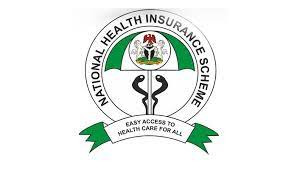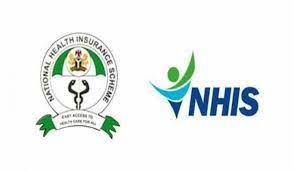Health
NHIA, SFH Sign MoU to Accelerate Universal Health Coverage

The National Health Insurance Agency (NHIA) and Society for Family Health (SFH) on Friday signed a Memorandum of Understanding (MoU) to accelerate Universal Health Coverage (UCH) in Nigeria.
The MoU was signed in Abuja by the Director-General of NHIA, Prof. Mohammed Sambo and the Managing Director of SFH, Dr Omokhudu Idogho.
Sambo said the collaboration was to deepen the penetration of health insurance in Nigeria.
He expressed optimism that the collaboration would be a good one as it took into cognisance many factors that would enhance health insurance in the country.
He said “going through the list of the areas, you will all agree that they are areas that are of paramount importance to the NHIA and they are areas that have a lot to do with deepening the penetration of NHIA and its activities in Nigeria.
“We are talking about the issues that have to do with health insurance under one roof, which is the coordination platform of the health insurance ecosystem in Nigeria.
“As an organisation, we recognised the fact that the health insurance ecosystem was operating in silos and states are expected to develop their state health insurance agencies.
“Many states were not able to do that and there was no clearly defined mechanism of interface between organisations and the major stakeholders.”
He added that this need gave birth to the health insurance under one roof initiative.
Sambo added that series of engagements with stakeholders were held and eventually the health insurance under one roof was agreed upon by all.
According to him, it is supposed to serve as platform that essentially coordinates all the health insurance activities in Nigeria.
He added that there are inputs from NHIA, state health insurance agencies, international partners and civil society organisations and healthcare providers.
Idogho of SFH said that the mission of the organisation is to improve the lives of Nigerians.
According to him, achieving health for all will require multisectoral collaborations from government, private and non-profit organisations.
He said that many challenges continue to pose threat to public health, especially high out of pocket spending and catastrophic expenditure on health.
Idogho said that SFH was supporting and contributing NHIA processes, including review of benefit packages and integration of Family Planning, HIV and Tuberculosis services.
He said the society also helped in the development of operational guidelines for the NHIA Act and design of new approaches and strategies to innovative/strategic financing toward making health insurance work for the people.
He added that “we will prioritise UHC with focus on Primary Health Care (PHC) and strategic purchasing in alignment with the SDG 3 on good health and wellbeing action plan.
“Signing the document by both parties is a critical step that would signpost the continuation of our robust partnership.
“This would be in provision of technical support and capacity building to the NHIA to strengthen its mandate toward achieving financial access to quality healthcare for Nigerians.”
The News Agency of Nigeria (NAN) reports that the areas of collaboration are innovative financing, benefit packages, design, review, optimisation and harmonisation.
SFH will also support NHIA in the implementation review of the NHIA 10 years strategic plan.
Collaborations are also in the area of social marketing, provision of capacity building for staff of NHIA, optimisation of health support to NHIA in the optionalisation of health insurance under one roof, as well as other areas of mutual interest. (NAN)(
Health
Psychiatrists Demand Decriminalization of Attempted Suicide

By Ubong Ukpong, Abuja
Association of Psychiatrists in Nigeria (APN) President, Prof. Taiwo James Obindo, has asked for the decriminalization of attempted suicide in the country.
He made the call at a stakeholders meeting organized by the House of Representatives Committee on Specialty Healthcare on the need to prioritize and implement the Mental Health Act.
Obindo said the establishment of the National Counselling Centers all over the country in an attempt to address mental health was like putting the cart before the horse, because suicide attempt was still a criminal offense in both the Criminal Act and the Penal Code.
“Hence the first step would be a move to decriminalize attempted suicide.
Criminalizing attempted Suicide has proven to be a major barrier for suicide prevention intervention service uptake.“The archaic law, inherited from our Colonial masters, in an attempt to stop the act of suicide did not address the thoughts and social determinants of Suicide. Significant evidence showed that 90% of those who take their lives through suicide had a background history of Mental Health Conditions; out of which 80% are attributable to Depression due to various bio-psycho-social aetiologies.
“Why do we, as a Nation, then punish individuals who are ill and need medical attention rather than prosecution? It will shock you to know that Nigeria, the giant of Africa, is lagging behind as quite a number of our neighbouring nations have abrogated that law.
“Establishing a Counselling center, without abrogating this archaic law would put, even the counselors at risk because the law also prescribes penalties for those who are aware of the plan but did not report,” he said.
The psychiatrists Association President called for the implementation of the Mental Health Act, which he said was a product of legislation that went through rigorous processes by the legislature, assented to by the President of the Federal Republic of Nigeria in 2022, and has been gazetted as a law in the Country.
This, he said, would address the “many years of neglect of this important aspect of our nationhood.”
Obindo said a requirement for the effective implementation of the Act was the establishment of a Mental Health Services Department in the Federal Ministry of Health.
“It will shock you to hear that, more than a year later, the department is yet to be established. Most of, if not all, the items in your plan are meant to be supervised by this department in obedience to the rule of law! Hence, the establishment of the department is germane to the success of all your plans,” he said.
He said the Association of Psychiatrists in Nigeria was an umbrella body of all Psychiatrists in the Country and other allied Practitioners.
He said they have been at the forefront of campaigns and advocacy for global best practices.
He lauded the Committee for the initiative, saying when well-implemented, would positively impact the hitherto neglected Mental Health, persons affected by Mental Health Conditions, and Mental Health Practitioners.
Chairman of the Committee on Special Healthcare, Dr Alex Egbona, said all stakeholders must partner to address mental health challenges and other related health cases.
The lawmaker said the committee was created to provide the requisite legislative frameworks for improved healthcare delivery in Nigeria.
He said the session was a collaborative initiative of the committee to share its mandate and planned activities with identified relevant institutions and organisations.
“I, therefore, solicit the support and partnership of all stakeholders, our development partners, international NGOs, and CSOs, you are all urged to take interest in building the capacity of the committee members and staff to enhance the efficacy of the committee.
“Consider our five thematic areas of Mental Health, Trauma and Obstetrics Fistula, Oral Health and ENT, Blood Transfusion, Blood and Management, Traditional Complementary and Alternative Medicine and engage the committee for maximum impact,” he said.
Health
WHO Expresses Concern over Monkey Pox Outbreak in DRC

25,318 suspected cases of monkey pox, including 1,204 deaths, have been reported in the Democratic Republic of the Congo (DRC) since the declaration of monkey pox outbreak in December 2022.
The World Health Organisation (WHO) said on Tuesday.
According to the latest report, the outbreak, which was declared by the DRC Health Ministry on Dec.
16, 2022, was prompted by a notable surge in cases and fatalities associated with monkey pox as well as a fast spread to non-endemic provinces.Since the beginning of 2024, a total of 5,133 suspected cases, including 321 deaths, have been reported, according to the WHO report. It warns that the current situation of the outbreak in the DRC is of “grave concern” due to the sustained increase in suspected cases compared to previous years.
It added that with a significant burden in younger populations, particularly children under 15 years of age, who constitute the majority of both suspected cases and deaths.
In April 2024, a high-level emergency regional meeting on monkey pox in Africa was convened in DRC capital Kinshasa, gathering 12 health ministers of regional countries, aiming to develop common strategies to prevent and intervene effectively in the face of monkey pox in Africa.
“We must prevent the DRC from becoming the source of cross-border transmission, and our partnership must prioritise the health of those affected,’’ said Jean Kaseya, the director general of the African Centers for Disease Control and Prevention (Africa CDC) at the meeting.
“Over the years, monkey pox has become a real public health problem for our communities in the DRC, a regional threat and ultimately a global problem.
“We must now mobilise to resolve this crisis,” said Roger Kamba, DRC minister of public health, hygiene and prevention, said at the meeting.
Monkey pox, first detected in laboratory monkeys in 1958, is assumed to be transmitted from wild animals such as rodents to people or from human to human (Xinhua/NAN)
Health
WHO Warns of ‘Bloodbath’ as Rafah Offensive Looms

The World Health Organisation (WHO) has warned of dire consequences if Israel goes ahead with an impending military operation in Rafah.
The planned push into the southern border city of Rafah would lead to “a bloodbath,” the organization wrote on X, formerly twitter on Saturday
The WHO said that more than 1.
2 million people were currently sheltering in the area, many unable to move anywhere else.“A new wave of displacement would exacerbate overcrowding, further limiting access to food, water, health and sanitation services, leading to increased disease outbreaks, worsening levels of hunger, and additional loss of lives.
”According to the WHO, only 33 per cent of Gaza’s 36 hospitals and 30 per cent of primary health care Centre’s were functional in some capacity amid repeated attacks and shortages of vital medical supplies, fuel, and staff.
WHO calls for an immediate and lasting ceasefire and the removal of the obstacles to the delivery of urgent humanitarian assistance into and across Gaza, at the scale that is required.
Israeli Prime Minister, Benjamin Netanyahu is determined to launch an offensive in Rafah to eliminate the remaining strongholds of Hamas.
The organisation said that although Israel’s allies have repeatedly urged caution, as a large majority of the approximately 2.2 million inhabitants of the Gaza Strip have fled to the south during the war. (dpa/NAN)



























